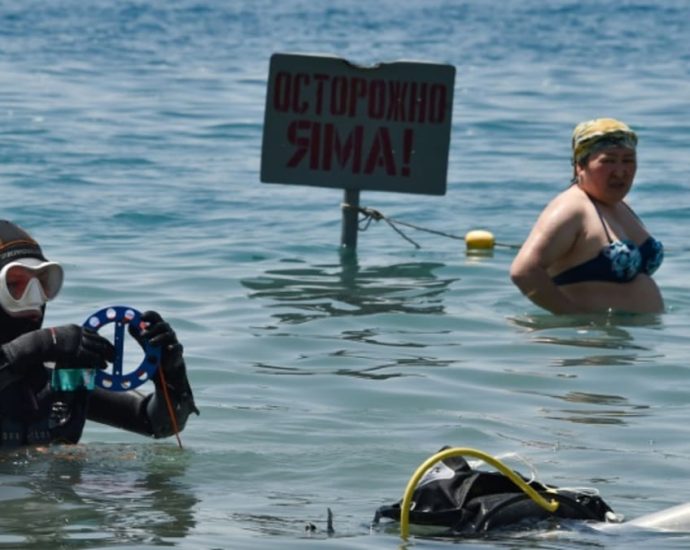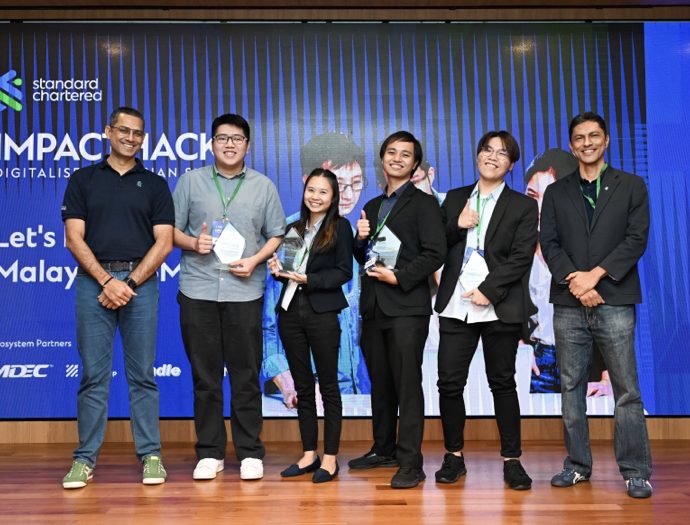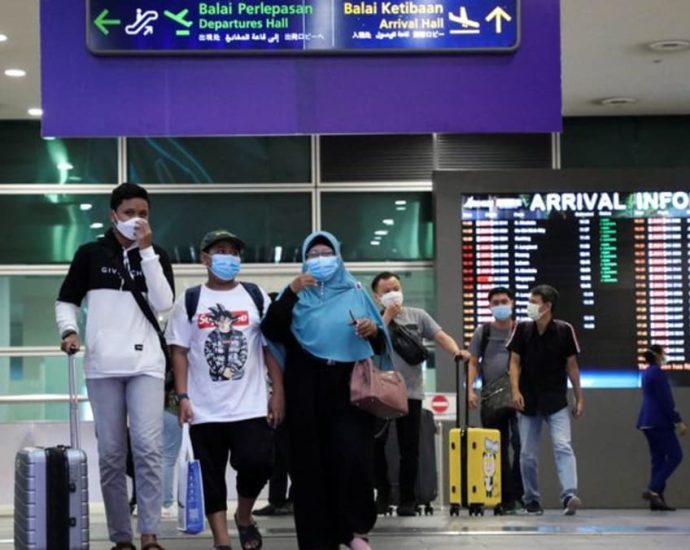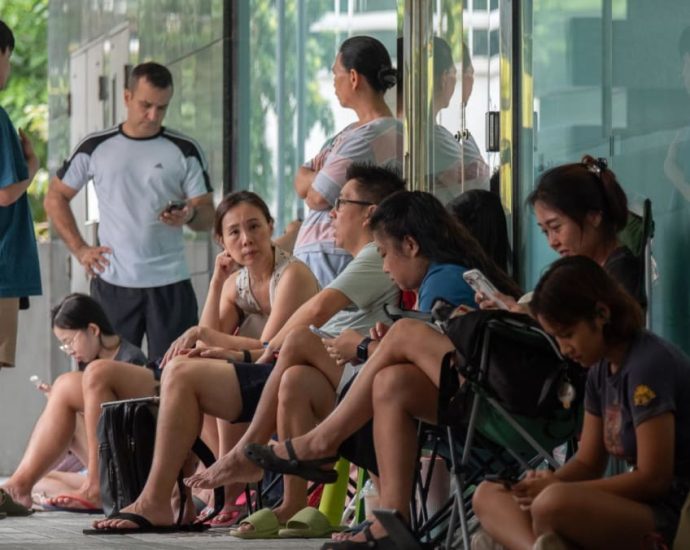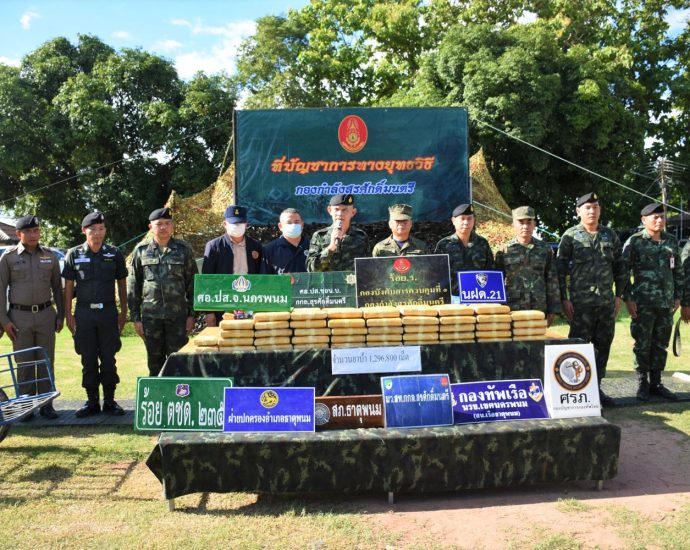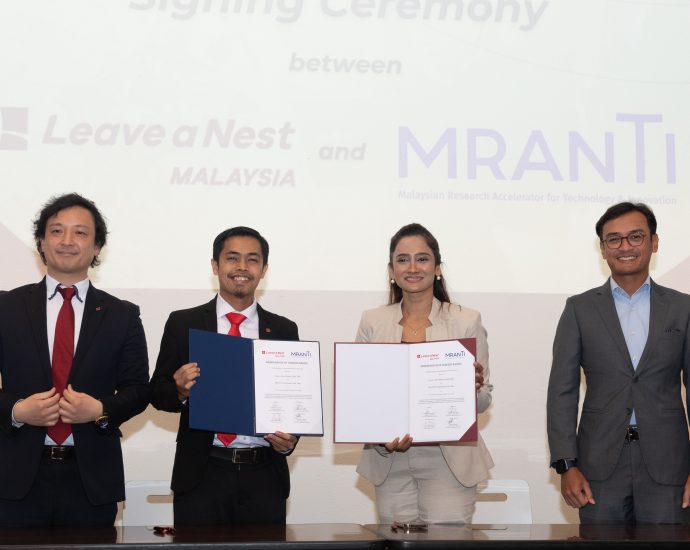PUBG: India-Pakistan gaming love story ends in jail
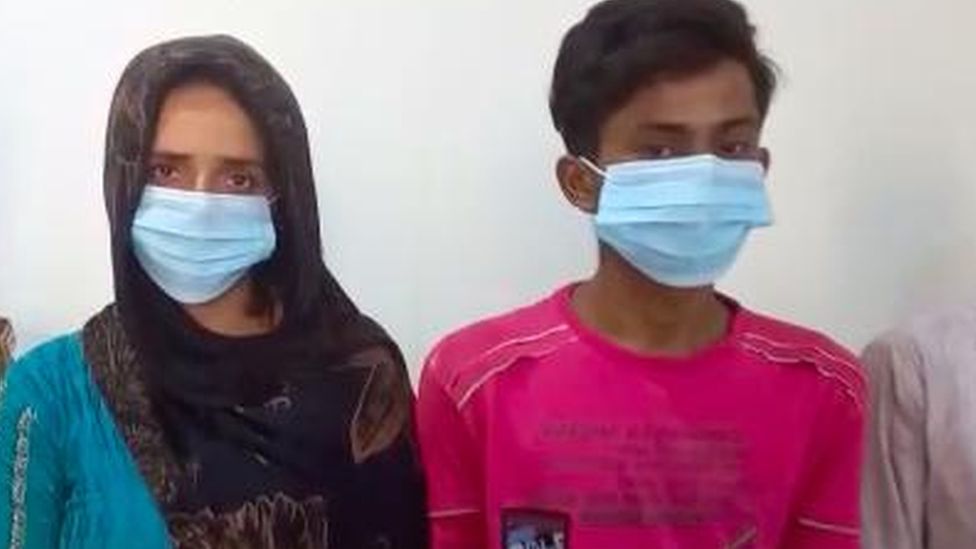
The love story of a Pakistani woman and an Indian man who met through popular online game PUBG has been making headlines in India after the couple landed up in jail.
Seema Ghulam Haider, 27, met Sachin Meena, 22, through the virtual gaming platform a couple of years ago and recently travelled to India so that she could live with him.
She entered India illegally in May along with her four young children and they were staying with Mr Meena in Greater Noida – a city in the northern state of Uttar Pradesh – for over a month, police said.
On Tuesday, the couple was arrested. A court has remanded them in jail for 14 days. The woman’s children are with their mother. The couple have told reporters that they want to get married and live together. Police say they are carrying out a detailed investigation into the case.
The India-Pakistan love story has sparked conversations around the role the virtual world plays in fostering real-life relationships across geographical borders.
Sparks fly on PUBG
Ms Haider married Ghulam Haider, a resident of Pakistan’s Sindh province, in February 2014. The couple had four children – three daughters and a son – together.
Five years after their marriage, her husband moved to Saudi Arabia for work. Ms Haider began playing PUBG to keep herself occupied.
“I used to play PUBG for two to three hours a day and I got to know Sachin while playing the game,” she told BBC Hindi. The two exchanged phone numbers and began speaking regularly.
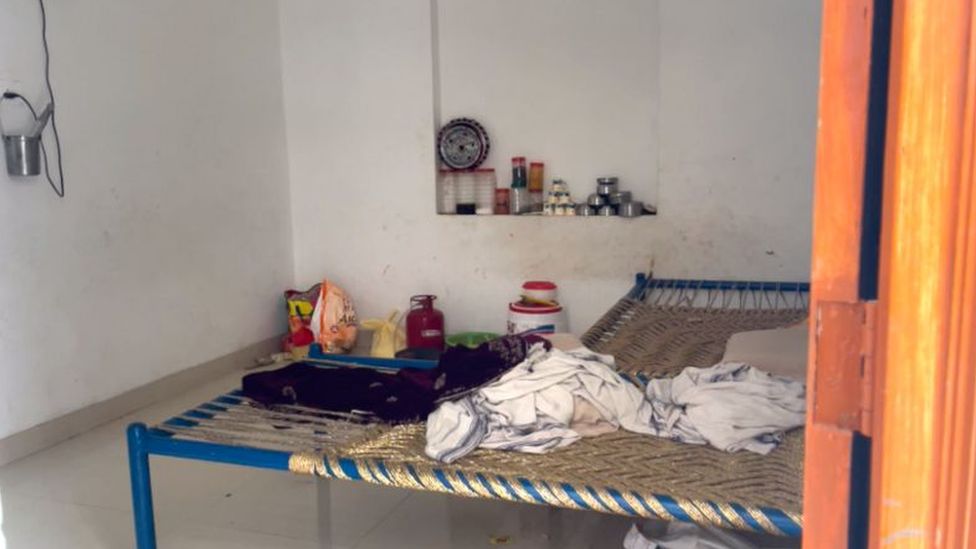
After their relationship had progressed over three years, Ms Haider decided to move to India to marry Mr Meena.
She has accused her husband of beating her and has told police that she had divorced him. Mr Haider has denied the domestic violence allegations and the divorce.
He has accused Ms Haider of selling their house in Pakistan and running away with their children and jewellery.
How the couple met
Police said that Ms Haider and Mr Meena first met in Nepal in March and stayed in a hotel for a couple of days before they returned to their respective countries.
In May, Ms Haider travelled to Nepal again on a tourist visa, this time with her four children. From there she took a bus to Delhi, senior police official in Greater Noida Saad Miya Khan told the BBC.
Police said she told them that she did not sell her husband’s house but a plot of land that belonged to her parents to gather money for the trip and got the idea of entering India via Nepal from a YouTube video.
Mr Meena, who lives in Rabupura town in Greater Noida and works in a grocery shop, rented a room to stay with Ms Haider and her children.
His landlord, Girish Kumar, told the BBC that he never suspected anything illegal as Mr Meena had provided necessary government documents while renting the house and that his parents too had come to visit the couple.
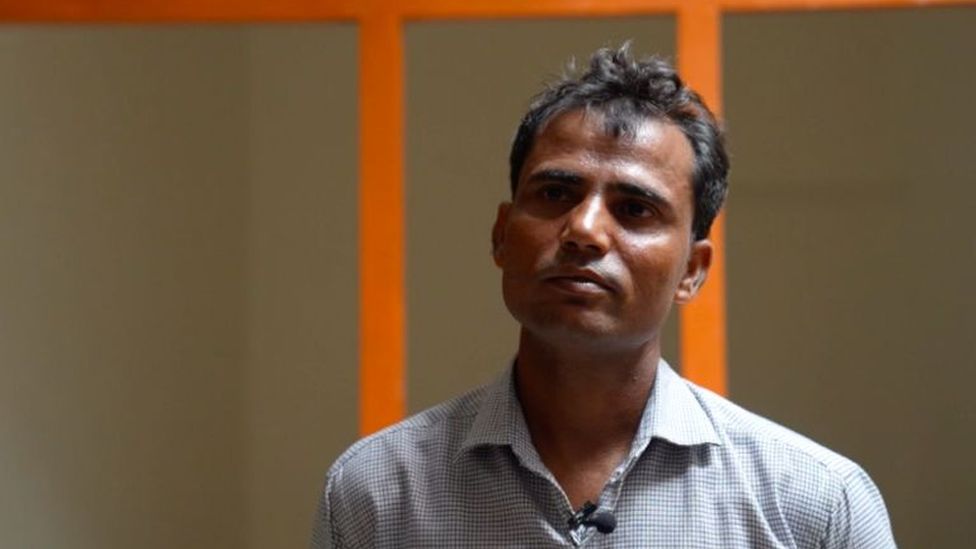
How they got caught
The couple reportedly met a local lawyer for advice about Ms Haider’s residency in India last week but the lawyer informed the police about them, Times of India newspaper reported.
“I was startled when I found that she and her children were carrying Pakistani passports,” the lawyer told the newspaper, and added that Ms Haider was making inquiries about the process of getting married in India.
The lawyer claimed that Ms Haider had said that her husband [Ghulam Haider] would physically assault her and that she had not met him in four years.
He also claimed that Ms Haider got up and left as soon as she was asked about her Indian visa and that one of his associates then followed her.
“When I learnt that they were living in Rabupura, I informed the police,” the lawyer said.
Along with the couple, the police have arrested Mr Meena’s father as well for sheltering Ms Haider without a visa.
The couple have appealed to the Indian government to help them get married.
Ms Haider’s husband, meanwhile, claims that his wife has been “seduced” through PUBG and wants her to be returned to Pakistan with their children.
Additional reporting by Riyaz Sohail and Shumaila Khan
BBC News India is now on YouTube. Click here to subscribe and watch our documentaries, explainers and features.

Read more India stories from the BBC:

-
-
17 August 2022
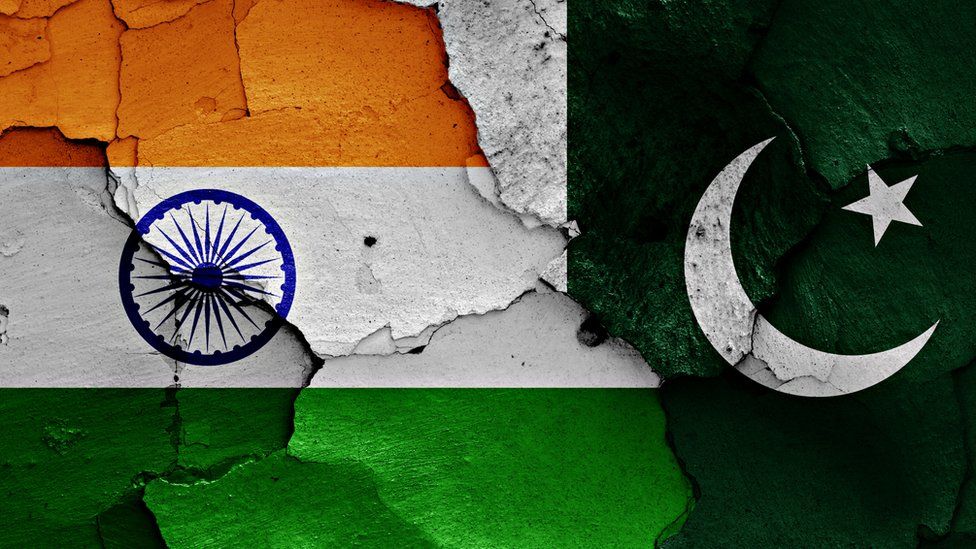
-
Rubbish-clearing divers come to rescue of ‘pearl of Kyrgyzstan’
ISSYK KUL LAKE: On the shores of Lake Issyk Kul in mountainous Kyrgyzstan, a group of divers show off their haul for the day – a boat engine, car tyres, bottles, clothes and plastic items. “We would love to dive and not find any waste,” said Anvar Shamsutdinov, the moustachioedContinue Reading
Team DoBetter wins the first ImpactHack 2023 Hackathon by Standard Chartered
The team walked away with US$6,444, trophies, and certificates
of the 100 teams that participated, 10 were chosen for the final presentatio
Team DoBetter took home US$6,444 (MYR30,000) well as trophies and certificates as the champion at ImpactHack 2023 Hackathon by Standard Chartered. The team won for their prototype solution BizFlow, a centralised…Continue Reading
KL airport incident: Malaysia introduces measures to prevent immigration abuses at entry points
KUALA LUMPUR: Malaysia’s Home Minister Saifuddin Nasution Ismail announced a slate of new measures that will be introduced at the country’s entry points following an incident of alleged corruption towards a Chinese traveller at the Kuala Lumpur International Airport (KLIA). From now, only senior officers of the Immigration Department whoContinue Reading
Taylor Swift fans start queuing at SingPost outlets more than 24 hours before general ticket sales start
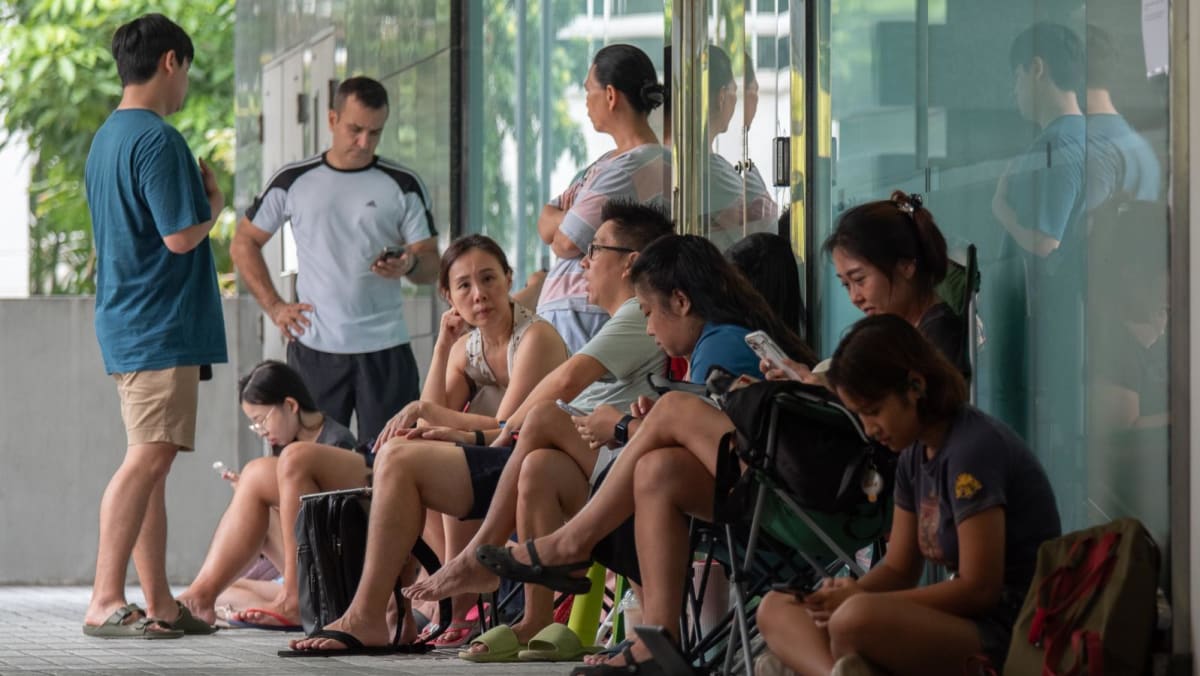
That “somebody” is Simone, an 18-year-old student at Nanyang Polytechnic. Like Catalina, Simone arrived at around 9am on Thursday. However, she was slightly ahead and ended up being the first person in line, that is, the person with a very high chance of scoring general sales tickets on Friday.
Despite the power she wields, Simone plans to only purchase Category 4 or 5 tickets (which cost S$248 and S$168, respectively) for just one show, citing budget issues. Like June, Simone opted to queue physically as “there were a lot of system crashes due to overload” and “there was a better chance of getting tickets (via SingPost) based on personal experience”.
Within hours of queuing, Simone had already formed a friendship with Catalina and June – the two women even helped watch over her spot as she went to have lunch with her mother. Swifties stick together, clearly.
Those trying to buy tickets on Friday have already cleared one hurdle – they are the lucky ones who have received a unique access code to participate in general sales, both online and offline. Some others have been put on a waitlist and will only be given codes should there be enough seats available.
With close to 24 hours till the start of general sales, how are these fans passing the time and staying fearless?
“Chit-chat, watch some K-dramas and read books,” said June.
Given the influx of high-profile concerts held in Singapore in the coming months, such as Twice and Coldplay, more and more fans are turning to SingPost outlets to secure their tickets. Yet, some netizens feel like the act of queuing overnight outside a post office borders on “excessive”. What do these fans have to say about that?
Catalina quipped: “It’s not excessive as we like (Swift’s) songs and we like her. That’s why we think it’s worth queuing up. We just buy enough for our own use and not for resale.”
Simone echoed her sentiments, saying: “It isn’t obsessive and I shouldn’t risk anything (for this concert). If you want something and are passionate about it, you should do all you can to get it.”
In any case, time will soon tell whether the efforts of these fans will be worth it.
Coco Lee: The pioneering singer who charmed the world
 Getty Images
Getty ImagesMillions of Asians tuned in on their television and mobile screens on what a Monday in March 2001 to watch Coco Lee sing A Love Before Time – the stirring theme from the acclaimed film Crouching Tiger, Hidden Dragon – at the 73rd Academy Awards.
Donning a red qipao, a traditional Chinese outfit, and golden chandelier earrings, Lee sang alongside a group of kungfu dancers, becoming the first Chinese-American to perform at the Oscars. The song was also nominated for best original song that year.
The then 26-year-old spoke of her ambition to leave an Asian footprint, literally, on the international stage. “I could sing for 30 years and never get the chance to perform like this,” Lee had said of the ground-breaking performance.
Lee died in Hong Kong on Wednesday at the age of 48. Her sisters, who broke the news on social media, said she had been suffering from depression for a few years and tried to take her own life on Sunday.
Long before representation became a talking point in entertainment, Lee became one of the first Asian singers to shoot to fame on both sides of the Pacific.
Born Ferren Lee on January 17, 1975, in Hong Kong, she moved to the US with her family when she was a secondary school student. After graduating from a public high school in California, she returned to Hong Kong, and then moved to Taiwan to launch her singing career. She soon broke into the Mandopop scene in 1994 with two albums.
Within a few years, she released English-language albums and crossed over to American charts. Disney hired her to voice the lead character in the Mandarin version of its hit film Mulan, for which she also sang the theme song, Reflection.
Her hit Before I Fall in Love made it to the soundtrack of the Julia Roberts-and-Richard Gere film Runaway Bride; and Do You Want My Love soared to the fourth spot on the US Billboard in 2000.

Lee will be remembered for “laying the groundwork, culturally and musically,” in bridging the gap between East Asian and Western audiences, entertainment blogger Brandon Lewis told the BBC. Some fans likened her to Mariah Carey.
She holds a special spot among Chinese millennials who grew up listening to her music in Mandarin and English. It was a time when Mandopop flourished as economies like China, Taiwan, Hong Kong and Singapore boomed. Amid a sea of demure female singers crooning ballads, Li Wen – as she is known in the Chinese-speaking world – stood out with her confident image, sexy dance moves and brightly-coloured locks.
One of her songs Di Da Di, a Chinese cover of a Danish pop song, became an instant hit and a karaoke staple after it appeared in an advertisement in mainland China.
Behind the fame and flamboyance, Lee remained close with her mother and sisters.
In the early years of her career, her sister Nancy served as Lee’s wardrobe consultant, public relations officer and makeup artist – including on Oscar night – while her mother was manager and accountant. It was in fact Nancy who suggested the moniker Coco.
As a child, Lee had wanted to follow in her mother’s footsteps to become a doctor. She initially tried to juggle singing with pre-medical studies in university, but eventually left school to focus on her pop career.
In an Instagram post on Wednesday, Lee’s sisters Carol and Nancy spoke poignantly of how their younger sister “worked tirelessly to open up a new world for Chinese singers in the international music scene”.

“She went all out to shine for the Chinese. We are proud of her,” they wrote.
Lee’s death came as a shock to fans and fellow artistes who remember her for her shiny smile and exuberance on stage. Inevitably, it sparked a discussion about mental health on social media.
Crouching Tiger, Hidden Dragon director Ang Lee said he was “very shocked” to hear the news, and star Jackie Chan said Lee had “such great talent and unique personal style” and was “born to be a star”. “There will be one more star in the sky from now on,” he added.
On YouTube, where fans are re-watching Lee’s music videos and leaving tributes, one comment read: “I hope Li Wen can continue singing up in heaven, far away from pain and illness. Your song will forever live in our hearts.”
Related Topics
-
-
14 hours ago

-
Vietnam probes Blackpink concert organiser over South China Sea map
HANOI: Vietnam has launched an inspection into K-pop group Blackpink’s tour organiser’s website, ahead of its concert in Hanoi, over criticism from fans that it shows a map of the South China Sea with disputed boundaries. The controversy follows Vietnam’s decision to ban Warner Bros’ highly-anticipated film “Barbie” over aContinue Reading
Fleeing smugglers abandon 1.3m speed pills
Suspects left drugs on bank of Mekong in Nakhon Phanom before fleeing in boat

Authorities have seized nearly 1.3 million speed pills abandoned by fleeing smugglers on the bank of the Mekong River in That Phanom district of Nakhon Phanom province.
Soldiers, police and local officials found three sacks containing 1.29 million speed pills bearing the WY logo on the river bank at Khab Phuang village in tambon Nam in the early hours of Wednesday. The smugglers on board a longtailed boat managed to flee, senior military officers said during a media briefing on Wednesday.
Information from the Office of the Narcotics Control Board and security officers showed that speed pills seized along the border recently had been mixed with pesticides to reduce costs. The drugs were sold cheaply at 20-25 baht each to attract users, mostly workers and young people.
Increasing quantities of speed pills are being smuggled from Laos into northeastern Thailand. This has prompted security agencies to increase patrols on land and water to stop the influx. Over the past week, more than 10 million speed pills had been seized in That Phanom district of Nakhon Phanom, said officers.

Security officers display 1.29 million speed pills seized on the bank of the Mekong River in That Phanom district of Nakhon Phanom during a media briefing on Wednesday. (Photo: Surasakmontri military task force)
Applications for the Global Market-Fit Programme Japan 2023 are now open
This year’s GMP is a collaboration between Mranti and Leave A Nest
Participants will have chance to expand their network in Tokyo and Osaka
Leave a Nest (LVNS) and the Malaysian Research Accelerator for Technology and Innovation (MRANTI) is collaborating in this year’s Global Market Fit Programme (GMP) Japan for startups seeking to…Continue Reading
Australia-Indonesia in a budding EV symbiosis
JAKARTA – As the first and only Indonesian leader with a commercial background, albeit from the heartland of rural Java, President Joko Widodo’s preoccupation with the economy and attracting foreign investment always dominates his agenda on trips abroad.
So it was with his latest visit to Australia, but with an important difference. Buoyed by the rapid growth of the electric vehicle (EV) industry, there are signs the two giant neighbors may have finally found the basis for a stronger and more sustainable relationship.
“I think this will be a massive transformation of the bilateral economic space because it has bigger implications,” former Australian diplomat Kevin Evans, director of the Australia-Indonesia Centre, told the Australian Broadcasting Corp (ABC).
“It’s not just about the Australia-Indonesian corridor,” he said. “It’s actually about doing things together that allows a move into much bigger markets around the region and the world.”
It will also depend on the active involvement of the Indonesian private sector and willingness of Indonesia-based companies to take a stake in West Australian lithium mines to shore up their supply chains.
“It will depend on Indonesia understanding that things are done here on a commercial basis,” says one Australian official, noting the Indonesian government’s interventionist role in making things happen in its economy. “It will still take time and a lot of effort.”
Prime Minister Anthony Albanese, who scored points with Widodo by making Jakarta his first port of call after he was sworn in last year, spoke of the often-turbulent relationship as “shifting up a gear.”
Central to that is the potential symbiotic partnership that could develop around EV batteries and Indonesia’s interest in importing Australian lithium, which along with some rare earth minerals is the one significant component it lacks.

Shortly before the leaders met, the Indonesian Chamber of Commerce and Industry (Kadin), signed a so-called Action Plan with the state government of West Australia, to bring both parties closer together in the critical minerals sector.
“The signing of the action plan is essential to seize opportunities and gather all parties involved in the critical mineral sector with those parties who will support them financially to realize more concrete cooperation,” said Indonesian Economic Coordinating Minister Airlangga Hartarto.
Australia is the world’s largest lithium producer, with last year’s output totaling 61,000 tonnes, or nearly half of global production, as trade in all EV battery ingredients – and their prices – rises significantly.
About 96% of Australia’s lithium exports last year went to China, which accounts for 58% of global lithium processing capacity and nearly 80% of global lithium battery manufacturing capacity, a dominance that worries the US.
Analysts say the lithium trade provides an opportunity to take full advantage of the 2020 Indonesia-Australia Comprehensive Economic Partnership Agreement (IA-CEPA), which aims to unlock the trade and investment potential of both countries.
Under one of four side agreements, A-CEPA provides Indonesian companies with preferential access to the Australian market by lowering the level of Australian content required in EV battery manufacturing.
Indonesian firms are understood to have had initial discussions with the owners of several West Australian lithium mines, but the only signed deal so far is an MOU between state-owned holding company MIND ID and Australian salt and potash supplier BCI Minerals.
In Indonesia, United Tractors, a subsidiary of car-maker Astra International, is taking a 19.99% interest in Australian-owned Nickel Industries Ltd, which supplies nickel ore to the Morawali and Weda Bay smelters in Central Sulawesi and Maluku.
Despite their proximity, Indonesia counts Australia as its 15TH top trading partner with imports last year of just US$3.5 billion, lagging Bangladesh ($3.9 billion) and Pakistan ($4.3 billion).
Australia, on the other hand, puts last year’s figure of Australian exports to Indonesia at $12.4 billion and Indonesian imports at $5.9 billion, a trade deficit in goods that Jakarta regularly complains about to Canberra’s bemusement.
The discrepancy is explained by the fact that Indonesia doesn’t take services into account, including money spent by the 1.2 million Australian tourists who are now flocking back to Bali after the Covid hiatus.
More than that, Indonesia ranked 27th as a destination for sluggish Australian foreign investment, much of it in the mining sector, and a lowly 38th place as a source of investment to Australia.

Australian officials say one significant impediment is the Indonesian mindset that it is unpatriotic to invest in other countries, one of many factors that expose over-regulated Indonesia’s failure to sell itself on the world stage.
Former ambassador to Jakarta John McCarthy has noted the absence of any real diplomatic crisis in recent years in a relationship once marred by heated disputes over East Timor and Papua and also by the execution of two Australian drug traffickers in 2015, the year after Widodo came to power.
“If this lack of fireworks continues, we should be diverted even less by the need for crisis management and be able to focus more on what we want from the relationship,” McCarthy wrote in the Australian Financial Review.



